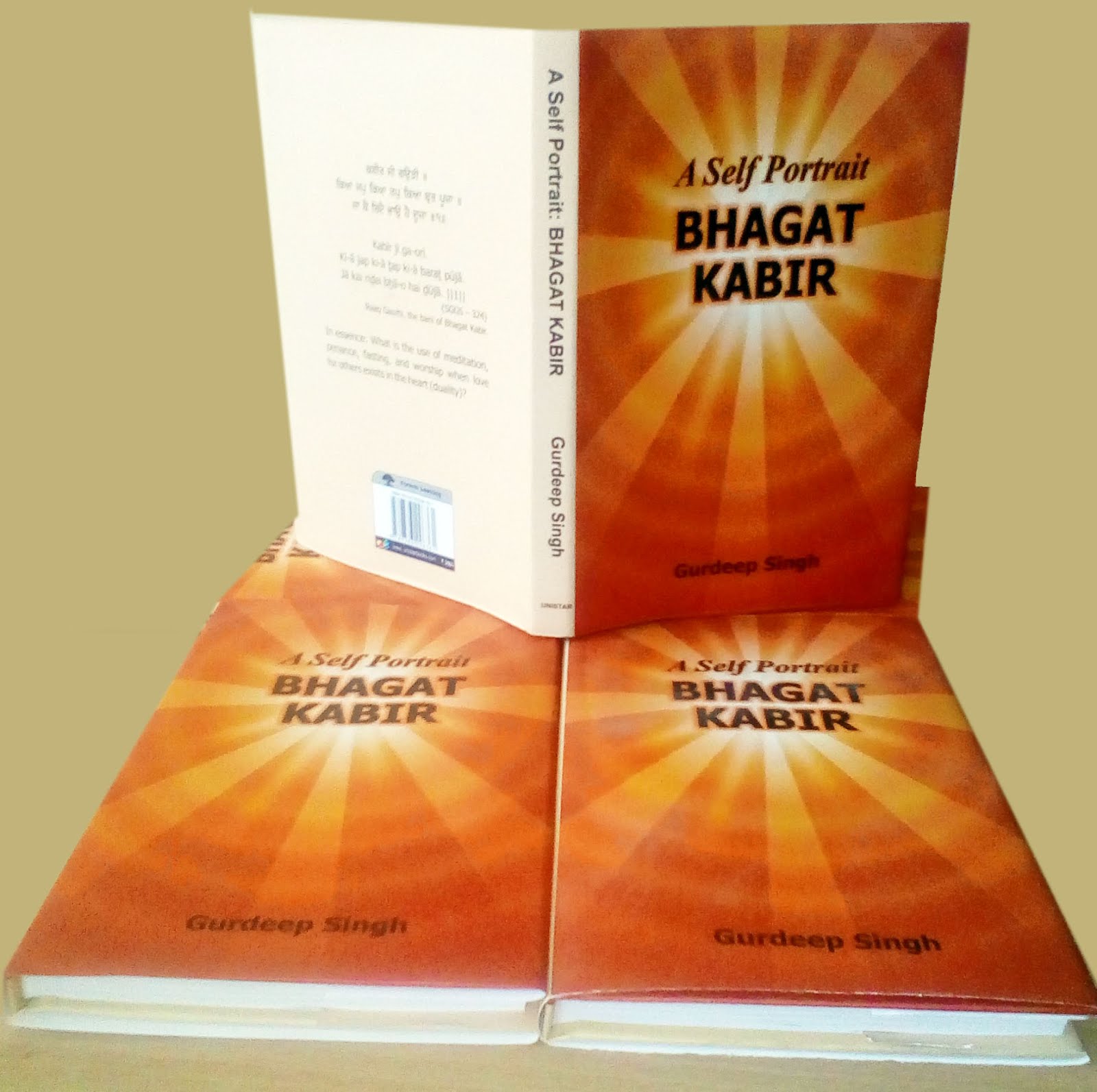First Nanak saw many people adopting various paths to realize the Creator; in the following shabda on 358, SGGS, he doesn’t criticize anyone believing that what they are doing is under the ordinance of the creator; however, he states how to live in His love and how to enjoy His union. Two points become clears: first, we, as his followers, should not criticize anyone’s faith or way of living; second, we should try to realize the Creator as our Guru guides us. In his times, there were many sectarian groups, as we witness today; he says, everyone lives, as the Creator wants; therefore, we are no one to judge others. In our Sikh community, people differ with each other in a big way and when I see them insulting others or slandering in the lowest way, I feel sad thinking that it is not permitted in the Gurbani but still we do it anyway. Let us go through this shabda of First Nanak and get inspiration to become virtuous:
ਆਸਾ ਘਰੁ ੪ ਮਹਲਾ ੧
Āsā gẖar 4 mėhlā 1
Raag Asa, the bani of First Nanak, house fourth.
ੴ ਸਤਿਗੁਰ ਪ੍ਰਸਾਦਿ ॥
Ik▫oaʼnkār saṯgur parsāḏ.
There is only one All Pervading Akalpurakh, who is known through the blessings of the Satiguru.
ਦੇਵਤਿਆ ਦਰਸਨ ਕੈ ਤਾਈ ਦੂਖ ਭੂਖ ਤੀਰਥ ਕੀਏ ॥
ਜੋਗੀ ਜਤੀ ਜੁਗਤਿ ਮਹਿ ਰਹਤੇ ਕਰਿ ਕਰਿ ਭਗਵੇ ਭੇਖ ਭਏ ॥੧॥
Ḏeviṯi▫ā ḏarsan kai ṯā▫ī ḏūkẖ bẖūkẖ ṯirath kī▫e.
Jogī jaṯī jugaṯ mėh rahṯe kar kar bẖagve bẖekẖ bẖa▫e. ||1||
In essence: Oh Akalpurakh! Devtas suffered from pain and hunger and roamed on pilgrimaging places to see you. The Yogi and Celibates remained disciplined wearing various orange colored garbs.
ਤਉ ਕਾਰਣਿ ਸਾਹਿਬਾ ਰੰਗਿ ਰਤੇ ॥
ਤੇਰੇ ਨਾਮ ਅਨੇਕਾ ਰੂਪ ਅਨੰਤਾ ਕਹਣੁ ਨ ਜਾਹੀ ਤੇਰੇ ਗੁਣ ਕੇਤੇ ॥੧॥ ਰਹਾਉ ॥
Ŧa▫o kāraṇ sāhibā rang raṯe.
Ŧere nām anekā rūp ananṯā kahaṇ na jāhī ṯere guṇ keṯe. ||1|| rahā▫o.
Oh my Master! Just to see you, they got drenched in your love. You have uncountable names and forms; your virtues cannot be expressed. Pause.
The Guru explains that many Devtas and other seekers endured pain and wore various garbs just to see Prabh. It was His love that led them into all that basically; then the Guru looks at all of them as His own part and he feels amazed at His uncountable virtues.
ਦਰ ਘਰ ਮਹਲਾ ਹਸਤੀ ਘੋੜੇ ਛੋਡਿ ਵਿਲਾਇਤਿ ਦੇਸ ਗਏ ॥
ਪੀਰ ਪੇਕਾਂਬਰ ਸਾਲਿਕ ਸਾਦਿਕ ਛੋਡੀ ਦੁਨੀਆ ਥਾਇ ਪਏ ॥੨॥
Ḏar gẖar mėhlā hasṯī gẖoṛe cẖẖod vilā▫iṯ ḏes ga▫e.
Pīr pekāʼnbar sālik sāḏik cẖẖodī ḏunī▫ā thā▫e pa▫e. ||2||
Oh Ekankar! Some people abandoned houses, mansions, elephants, and horses and went to foreign lands. The religious leaders, prophets, seers, and men of faith have abandoned the world to be accepted by you.
ਸਾਦ ਸਹਜ ਸੁਖ ਰਸ ਕਸ ਤਜੀਅਲੇ ਕਾਪੜ ਛੋਡੇ ਚਮੜ ਲੀਏ ॥
ਦੁਖੀਏ ਦਰਦਵੰਦ ਦਰਿ ਤੇਰੈ ਨਾਮਿ ਰਤੇ ਦਰਵੇਸ ਭਏ ॥੩॥
Sāḏ sahj sukẖ ras kas ṯajī▫ale kāpaṛ cẖẖode cẖamaṛ lī▫e.
Ḏukẖī▫e ḏaraḏvanḏ ḏar ṯerai nām raṯe ḏarves bẖa▫e. ||3||
Many people gave up relish, comforts, and dainties and wore skin-clothes by abandoning regular clothes. Many persons, being affected by pain, cried at your door and became hermit drenched in your name.
ਖਲੜੀ ਖਪਰੀ ਲਕੜੀ ਚਮੜੀ ਸਿਖਾ ਸੂਤੁ ਧੋਤੀ ਕੀਨ੍ਹ੍ਹਹੀ ॥
ਤੂੰ ਸਾਹਿਬੁ ਹਉ ਸਾਂਗੀ ਤੇਰਾ ਪ੍ਰਣਵੈ ਨਾਨਕੁ ਜਾਤਿ ਕੈਸੀ ॥੪॥੧॥੩੩॥
Kẖalṛī kẖaprī lakṛī cẖamṛī sikẖā sūṯ ḏẖoṯī kīnĥī.
Ŧūʼn sāhib ha▫o sāʼngī ṯerā paraṇvai Nānak jāṯ kaisī. ||4||1||33||
Some persons wore Skin-clothes carrying begging bowl and wooden stick; some wore deerskin and some wore loincloth and sacred threads. Nanak humbly says: Oh Prabh! You are my Master and I am your puppet (I live as you keep me without joining any category of Brahmin, Sanyassi, Jaini, Harmit and others) and I do not belong to any of the category (expressed earlier).
The last verse contains the Guru’s advice; he is comfortable with all who have joined various groups to realize the Creator, but he expresses his pleasure to remain happy in His ordinance; without agreeing with any Brahmin, Sanyassi, Jaini or other. Obviously living among His created various believers, he remains devoted to Him only; his advice is not to follow others; instead living in His Will by realizing His ordinance is recommended.
On 359, the Guru advises us actually how to materializes the union with the Creator:
ਆਸਾ ਘਰੁ ੬ ਮਹਲਾ ੧ ॥
Aasaa ghar 6 mehlaa 1.
Raag Asa, the bani of First Nanak, house sixth.
ਮਨੁ ਮੋਤੀ ਜੇ ਗਹਣਾ ਹੋਵੈ ਪਉਣੁ ਹੋਵੈ ਸੂਤ ਧਾਰੀ ॥
ਖਿਮਾ ਸੀਗਾਰੁ ਕਾਮਣਿ ਤਨਿ ਪਹਿਰੈ ਰਾਵੈ ਲਾਲ ਪਿਆਰੀ ॥੧॥
Man moṯī je gahṇā hovai pa▫uṇ hovai sūṯ ḏẖārī..
Kẖimā sīgār kāmaṇ ṯan pahirai rāvai lāl pi▫ārī. ||1||
In essence: If the soul-bride makes an ornament of her pure mind–pearl and weaves it through the thread of her breath by remembering Prabh’s name and if she decorates herself with the ornament of tolerance, then she meets her beloved Prabh by becoming dear to Him (this way).
ਲਾਲ ਬਹੁ ਗੁਣਿ ਕਾਮਣਿ ਮੋਹੀ ॥
ਤੇਰੇ ਗੁਣ ਹੋਹਿ ਨ ਅਵਰੀ ॥੧॥ ਰਹਾਉ ॥
Lāl baho guṇ kāmaṇ mohī.
Ŧere guṇ hohi na avrī. ||1|| rahā▫o.
Oh Virtuous Akalpurakh! The soul-bride is fascinated by your virtues, and she doesn’t see those virtues in anyone else. Pause.
ਹਰਿ ਹਰਿ ਹਾਰੁ ਕੰਠਿ ਲੇ ਪਹਿਰੈ ਦਾਮੋਦਰੁ ਦੰਤੁ ਲੇਈ ॥
ਕਰ ਕਰਿ ਕਰਤਾ ਕੰਗਨ ਪਹਿਰੈ ਇਨ ਬਿਧਿ ਚਿਤੁ ਧਰੇਈ ॥੨॥
Har har hār kanṯẖ le pahirai ḏāmoḏar ḏanṯ le▫ī.
Kar kar karṯā kangan pahirai in biḏẖ cẖiṯ ḏẖare▫ī. ||2||
She should wear a garland of Prabh’s memory. She should make decorative paste of Prabh’s name and wear bangles of His devotion. If she does so, then her mind will settle on Him (will not wander around).
ਮਧੁਸੂਦਨੁ ਕਰ ਮੁੰਦਰੀ ਪਹਿਰੈ ਪਰਮੇਸਰੁ ਪਟੁ ਲੇਈ ॥
ਧੀਰਜੁ ਧੜੀ ਬੰਧਾਵੈ ਕਾਮਣਿ ਸ੍ਰੀਰੰਗੁ ਸੁਰਮਾ ਦੇਈ ॥੩॥
Maḏẖusūḏan kar munḏrī pahirai parmesar pat le▫ī.
Ḏẖīraj ḏẖaṛī banḏẖāvai kāmaṇ sarīrang surmā ḏe▫ī. ||3||
She should wear Prabh’s love-ring and use His support. She should deem love for Him as her silken clothes. She should use patience as a color in her hair partings on her head and apply Prabh’s love in her eyes (decoration with patience and His love).
ਮਨ ਮੰਦਰਿ ਜੇ ਦੀਪਕੁ ਜਾਲੇ ਕਾਇਆ ਸੇਜ ਕਰੇਈ ॥
ਗਿਆਨ ਰਾਉ ਜਬ ਸੇਜੈ ਆਵੈ ਤ ਨਾਨਕ ਭੋਗੁ ਕਰੇਈ ॥੪॥੧॥੩੫॥
Man manḏar je ḏīpak jāle kā▫i▫ā sej kare▫ī.
Gi▫ān rā▫o jab sejai āvai ṯa Nānak bẖog kare▫ī. ||4||1||35||
Oh Nanak! If she uses her mind as His temple by lightening a lamp of the Guru’s guidance in it and uses her body as a bed to meet Prabh, then He, the King of divinity, comes to her bed and enjoys her (Thus she can materialize her union with Him).
On 465-466 SGGS, there is First Nanak’s Slok in which he describes how the world lives, but at the end of the slok, he expresses how Akalpurakh’s lovers desire only His praise. That Slok describes the basic need of a true devotee without worrying about what others do; here it is:
Page 465-466
ਸਲੋਕ ਮਃ ੧ ॥
ਮੁਸਲਮਾਨਾ ਸਿਫਤਿ ਸਰੀਅਤਿ ਪੜਿ ਪੜਿ ਕਰਹਿ ਬੀਚਾਰੁ ॥
ਬੰਦੇ ਸੇ ਜਿ ਪਵਹਿ ਵਿਚਿ ਬੰਦੀ ਵੇਖਣ ਕਉ ਦੀਦਾਰੁ ॥
ਹਿੰਦੂ ਸਾਲਾਹੀ ਸਾਲਾਹਨਿ ਦਰਸਨਿ ਰੂਪਿ ਅਪਾਰੁ ॥
ਤੀਰਥਿ ਨਾਵਹਿ ਅਰਚਾ ਪੂਜਾ ਅਗਰ ਵਾਸੁ ਬਹਕਾਰੁ ॥
ਜੋਗੀ ਸੁੰਨਿ ਧਿਆਵਨ੍ਹਿਹ ਜੇਤੇ ਅਲਖ ਨਾਮੁ ਕਰਤਾਰੁ ॥
ਸੂਖਮ ਮੂਰਤਿ ਨਾਮੁ ਨਿਰੰਜਨ ਕਾਇਆ ਕਾ ਆਕਾਰੁ ॥
ਸਤੀਆ ਮਨਿ ਸੰਤੋਖੁ ਉਪਜੈ ਦੇਣੈ ਕੈ ਵੀਚਾਰਿ ॥
ਦੇ ਦੇ ਮੰਗਹਿ ਸਹਸਾ ਗੂਣਾ ਸੋਭ ਕਰੇ ਸੰਸਾਰੁ ॥
ਚੋਰਾ ਜਾਰਾ ਤੈ ਕੂੜਿਆਰਾ ਖਾਰਾਬਾ ਵੇਕਾਰ ॥
ਇਕਿ ਹੋਦਾ ਖਾਇ ਚਲਹਿ ਐਥਾਊ ਤਿਨਾ ਭਿ ਕਾਈ ਕਾਰ ॥
ਜਲਿ ਥਲਿ ਜੀਆ ਪੁਰੀਆ ਲੋਆ ਆਕਾਰਾ ਆਕਾਰ ॥
ਓਇ ਜਿ ਆਖਹਿ ਸੁ ਤੂੰਹੈ ਜਾਣਹਿ ਤਿਨਾ ਭਿ ਤੇਰੀ ਸਾਰ ॥
ਨਾਨਕ ਭਗਤਾ ਭੁਖ ਸਾਲਾਹਣੁ ਸਚੁ ਨਾਮੁ ਆਧਾਰੁ ॥
ਸਦਾ ਅਨੰਦਿ ਰਹਹਿ ਦਿਨੁ ਰਾਤੀ ਗੁਣਵੰਤਿਆ ਪਾ ਛਾਰੁ ॥੧॥
Salok mėhlā 1.
Musalmānā sifaṯ sarī▫aṯ paṛ paṛ karahi bīcẖār.
Banḏe se jė pavėh vicẖ banḏī vekẖaṇ ka▫o ḏīḏār.
Hinḏū sālāhī sālāhan ḏarsan rūp apār.
Ŧirath nāvėh arcẖā pūjā agar vās bėhkār.
Jogī sunn ḏẖi▫āvniĥ jeṯe alakẖ nām karṯār.
Sūkẖam mūraṯ nām niranjan kā▫i▫ā kā ākār.
Saṯī▫ā man sanṯokẖ upjai ḏeṇai kai vīcẖār
Ḏe ḏe mangėh sahsā gūṇā sobẖ kare sansār.
Cẖorā jārā ṯai kūṛi▫ārā kẖārābā vekār.
Ik hoḏā kẖā▫e cẖalėh aithā▫ū ṯinā bẖė kā▫ī kār.
Jal thal jī▫ā purī▫ā lo▫ā ākārā ākār.
O▫e jė ākẖahi so ṯūʼnhai jāṇėh ṯinā bẖė ṯerī sār.
Nānak bẖagṯā bẖukẖ sālāhaṇ sacẖ nām āḏẖār.
Saḏā anand rahėh ḏin rāṯī guṇvanṯi▫ā pā cẖẖār. ||1||
Sloka of First Nanak.
In essence: For Muslims, the Islamic law is important and they reflect on it; as per their views, those persons, who live according to the Islamic law are real servants of the Creator and they see Him. The Hindus praise the Creator, but they see Him in many beauteous forms. They bathe at holy places; they make flower offering, give incense and give sandalwood incense to their Idols. The yogis meditate on the absolute Creator and utter His name by saying “Alakh/the Creator is invisible”, and they say that all, which is seen, is His body and He is immaculate. By giving away (Charity), the generous persons get pleased, but they demand thousand times more and seek recognition from the world. There are others like thieves, adulterous, evildoers and liars, who are into such acts and they eat and depart from here; this is the way they are made to act. There are the lives in water, on the earth, in the world and in the universe. Oh Prabh! What they say, you understand and you are their support. (What really the Guru believes in is:) Oh Nanak! Prabh’s devotees desire to do His praise, because that is their internal hunger, and His eternal name is their support. They remain in bliss by praising Him and by being humblest to the virtuous ones.
The Guru advises the followers to obtain virtues and develop love for Prabh in a way that He should be pleased; then there is certainty of His union. The Guru guides the seeker how to please Him through an example of a bride, who decorates herself for her husband only.
Important point is to remain deeply in love with the Creator instead of stressing on special dresses or rituals or unique way of wandering here and there. Seeking refuge in the Creator’s ordinance, the seeker is advised first to fall in love with Him heartily. The true love for Him brings virtues in and eradicates evil intentions of the mind. The ultimate Guide is the Creator, but one’s sincere love for Him paves the path leading to His union; otherwise, contradictory behavior keeps hypocrisy alive in the seeker that becomes a big obstacle in materializing His union.
Humbly
Gurdeep Singh









